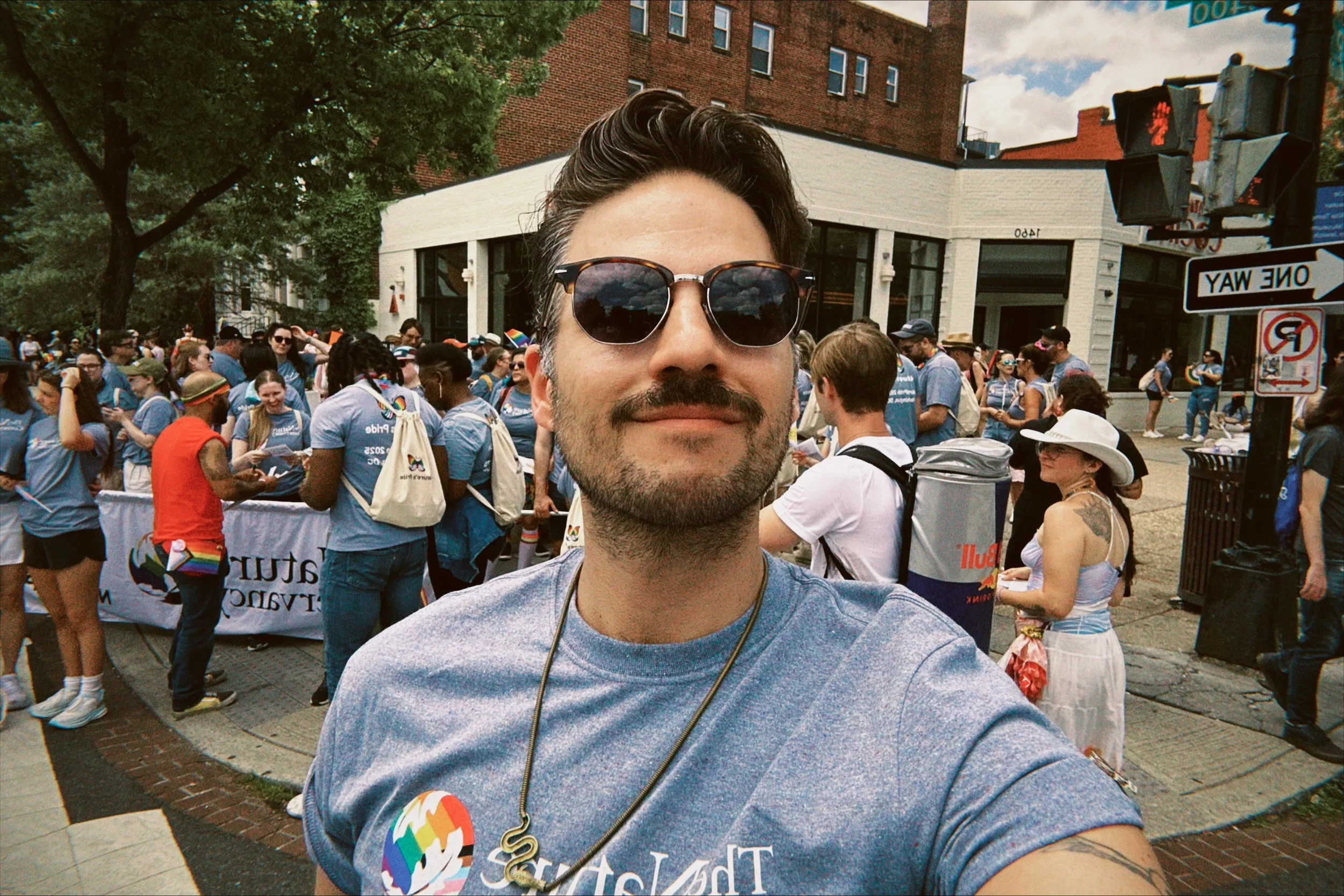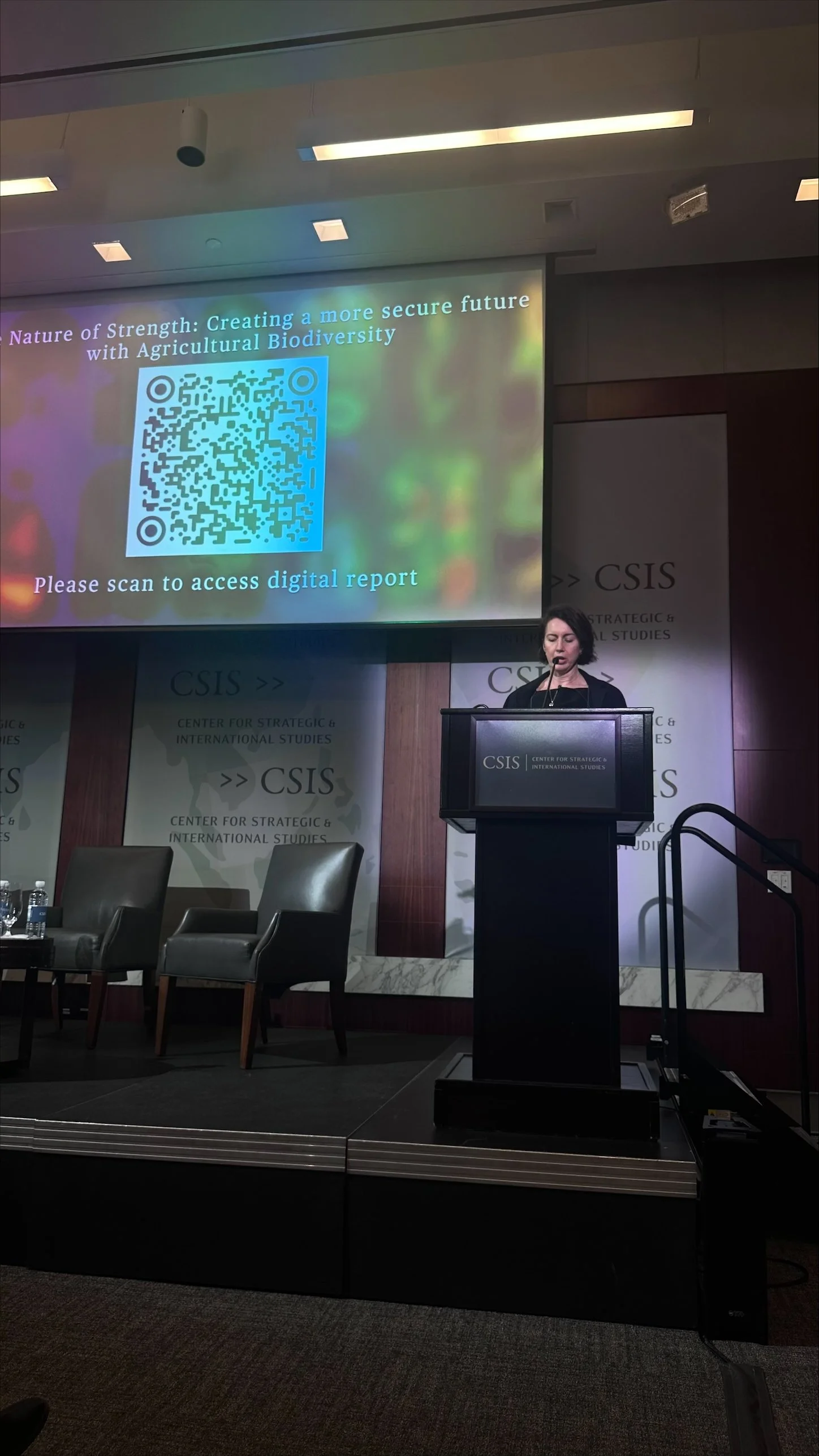Subsidies, Summits, and the Soil Beneath: A Summer Shaping Agricultural Incentives with The Nature Conservancy
By Daniel Alegre
This summer, I joined The Nature Conservancy’s (TNC) Global Agriculture and Food Systems Policy team during a critical window for shaping how public and private finance supports land use, food systems, and biodiversity goals.
Starting in late May, I relocated to Washington, DC for an in-person induction at TNC headquarters: an opportunity to engage directly with senior advisors, attend internal briefings, and gain firsthand exposure to the DC policy landscape. The experience confirmed not only how well TNC’s 2030 Goals, priorities and agenda aligned with my academic and professional interests, but also how seriously the organization takes its culture. I was invited to join “Nature’s Pride”, TNC’s LGBTQ+ employee collective, at a time when DEI efforts in DC face political backlash. We as an organization took part on DC’s World Pride March celebration. That space of solidarity added depth to an already meaningful professional environment.
In June, I traveled to Cali, Colombia to represent TNC’s AgroFood team at the “Regeneradores Summit”, a regional gathering of agriculture, impact investing finance, and conservation actors. There, I introduced TAFP+ to stakeholders from Latin America and connected with groups like SVX.MX, who later invited TNC to present at their upcoming 2026 Latin American Regenerative Investment Summit (LARIS). These engagements helped position the tool as a strategic offering not just for public institutions, but also for the impact investment ecosystem.
In July, I turned these leads into concrete opportunities, facilitating meetings in Mexico City with federal agencies and private sector stakeholders. I co-hosted technical discussions with CONAFOR (National Forestry Commission) and SADER (Secretariat of Agriculture and Rural Development), two key players in shaping Mexico’s agricultural landscape. Both expressed interest in piloting the tool to help evaluate environmental performance, an early but promising step for eventual TAFP+ adoption in Mexico.
Additionally, I also contributed to TNC’s broader policy agenda in Mexico, including the early stages of a contest to submit a National Methane Strategy for the livestock sector. This involved preparing briefing materials, understanding the application timeline for financing, coordinating interagency and NGO dialogues, and helping translate scientific evidence into policy-aligned outputs.
Toward the end of my internship, I was invited to present a proposal to continue collaborating as a consultant on these deliverables during my final semester at The Fletcher School, with the potential to transition into a more permanent role post-graduation. The invitation reflects the mutual trust and strong match between my skills, TNC’s needs, tied to the organization’s 2030 Global Goals and our shared ambition for systems-level change.
This internship pushed me to operate at a higher level of responsibility, sharpened my skills in strategic communication and political analysis, and confirmed my long-term commitment to shaping public finance for nature-positive outcomes. I am grateful to CIERP and CPL for making it possible, and for helping me build not just experience, but momentum.
Daniel Alegre is a Master of Global Affairs candidate at The Fletcher School at Tufts University, with a concentration in International Development and Environmental Policy. A former Foreign Affairs Ministry of Mexico appointee, he recently completed a summer internship with The Nature Conservancy’s Global Agriculture and Food Policy team in Washington, D.C. His work focuses on climate diplomacy, sustainable agriculture, energy transition, and the role of international cooperation . Originally from Mexico City, he is currently based in Boston.


